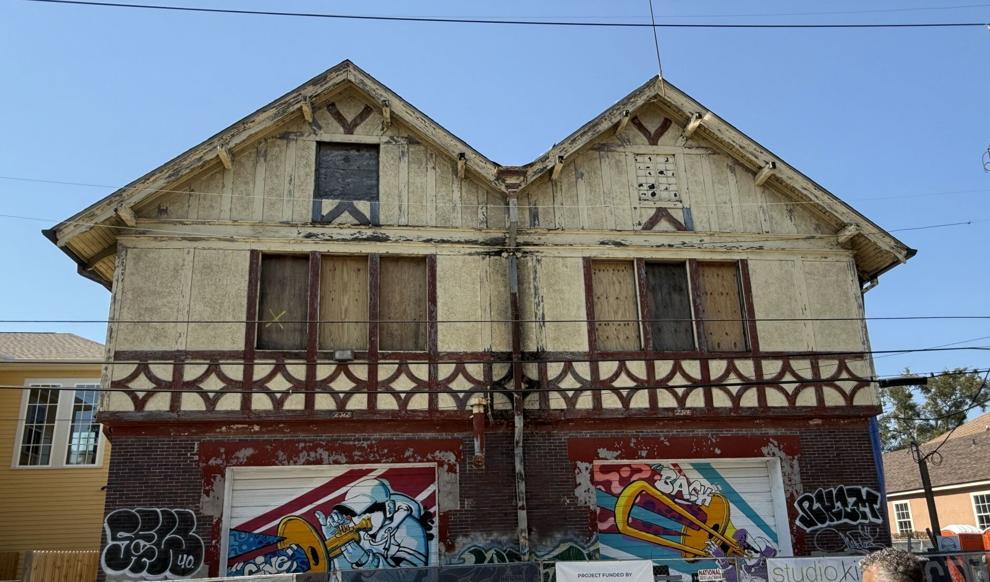
Clancy DuBos: Affordable housing in NOLA finally getting the attention it deserves
By Clancy DuBos
While the presidential race is still very much a toss-up, some winners are already certain when the votes are counted in New Orleans on Nov. 5: advocates of affordable housing and persons in need of housing assistance.
The New Orleans City Council is asking voters to approve an amendment to the City Charter that would dedicate 2% of annual general revenues to affordable housing initiatives. That measure appears on the ballot as Proposition 1.
The council is taking no chances, however. It passed an ordinance doing pretty much the same thing last March.
The main difference between the two is permanence, or lack thereof.
If voters approve Prop 1, the 2% dedication would be locked into the charter and could be changed or removed only by another referendum or by unanimous vote of a council quorum during a declared emergency. If voters reject the proposed amendment, the ordinance could be changed by the council at any time by majority vote and mayoral signature.
Neither would create a new tax. Instead, each would require the council to spend a similar amount on housing initiatives.
The charter amendment would put 2% of the city’s existing general revenue funds — about $17 million in 2025 — toward addressing the city's shortage of housing for low- and moderate-income residents. General revenues are those that are not already dedicated to specific needs or agencies and account for 18.7% of the city’s total capital and operating budgets, according to District B Council member Lesli Harris, who authored the proposed amendment.
The backup ordinance, authored by District A Council member Joe Giarrusso, sets a goal of $20 million with the amount to rise with inflation. Unlike the amendment, federal money that the city already receives could conceivably count toward the total.
Both Prop 1 and the ordinance would establish a housing trust fund administered by agencies outside of City Hall — the quasi-public Finance Authority of New Orleans and the New Orleans Redevelopment Authority — but all disbursements would be subject to council oversight.
A seven-person advisory panel, with members appointed by the council, the mayor and housing nonprofits, would advise the two agencies in determining which initiatives to fund. Advocates have suggested programs to support first-time homebuyers, to provide gap financing for affordable housing developers and to subsidize fortified roofs and other weatherization work for homeowners and small landlords.
A second proposed charter amendment also appears on the Nov. 5 ballot. Proposition 2 would add to the charter’s bill of rights a nonbinding expression of the city’s support for worker rights.
“It’s aspirational and does not have the force of law,” says City Council President Helena Moreno, the proposed amendment's author, “but it’s important to state what kind of city we want to be — one that supports equal pay, fair and safe work environments, health care pay and a living wage.”
So far, only Proposition 1 has received significant public attention.
In addition to the unanimous backing of the City Council, a handful of New Orleans developers and housing advocates have provided financial support to the Nola First Political Action Committee. The PAC created the Yes to Nola Housing website and is behind other efforts to support the creation of the NOLA Housing Trust Fund, according to financial filings and interviews.
“We’re setting the stage for real change,” says Andreanecia Morris, executive director of HousingNOLA, an affordable housing advocacy group. “These dollars, which are in addition to federal dollars for housing programs, are flexible — but there are guard rails put in. The council will oversee the administration of the money. It will also allow the city to respond when there is a crisis.”
Housing advocates have pushed officials for years to do more to address the local housing shortage. They say the city needs at least 47,000 new affordable units.
The nonprofit Bureau of Governmental Research (BGR) has issued a report on Prop 1 and opposes it.
“The city can and should make new housing investments as part of its strategy to alleviate the problems,” BGR stated. “While the proposed charter amendment would guarantee consistent new funding for housing, it would also be difficult to alter or undo. It would unnecessarily limit the city’s budget flexibility as it confronts substantial new costs for personnel, infrastructure and other needs.”
BGR instead recommends that the council strengthen the affordable housing ordinance already in place by increasing the annual local appropriation, adopting a long-term financial plan for the housing fund and adding greater transparency and accountability to the fund’s advisory panel.
Whatever New Orleans voters decide, affordable housing is finally getting the attention it deserves.
Clancy DuBos is Gambit's politics editor. You can reach him at This email address is being protected from spambots. You need JavaScript enabled to view it..
